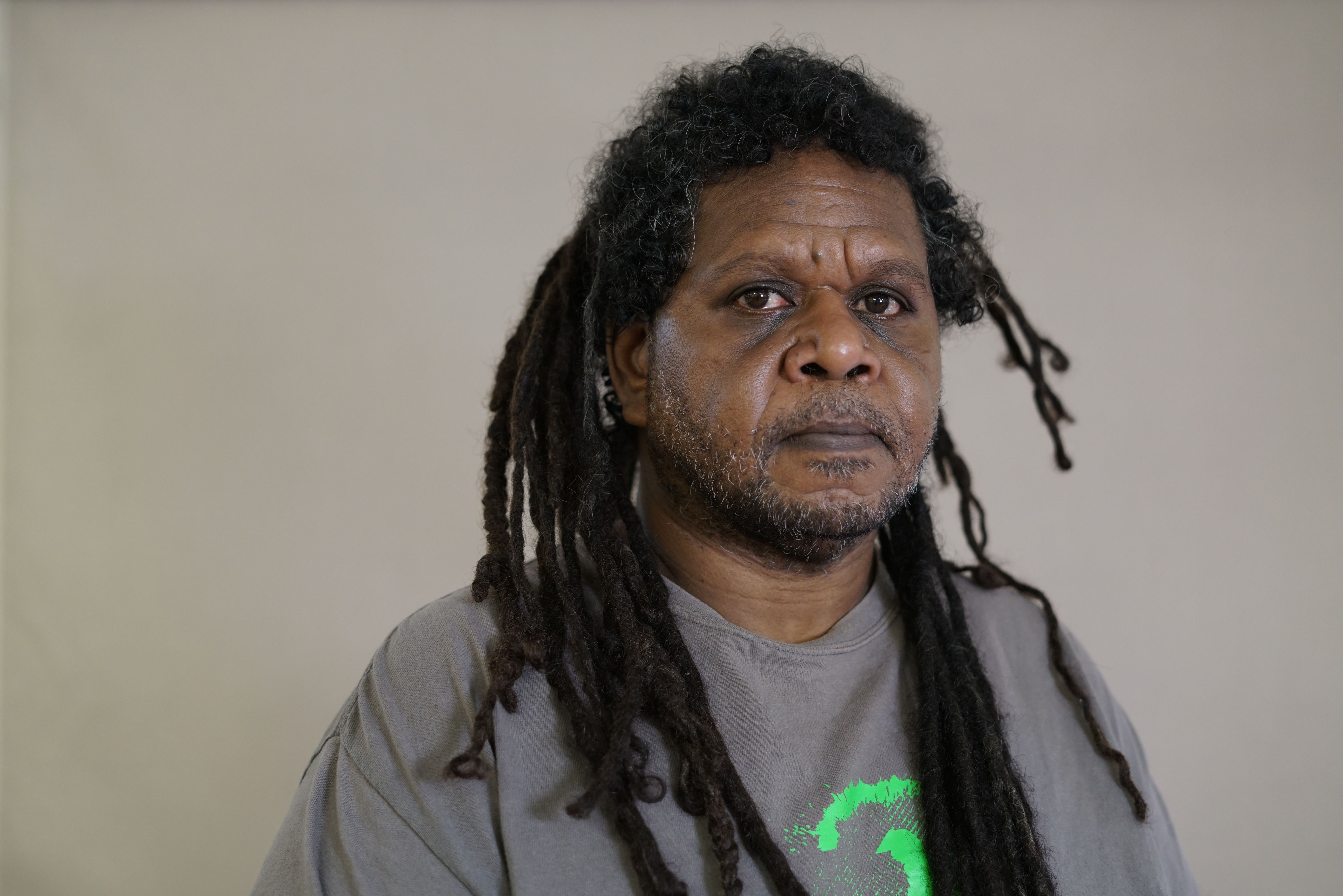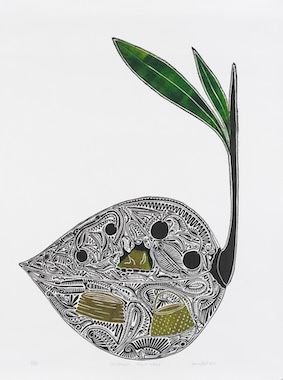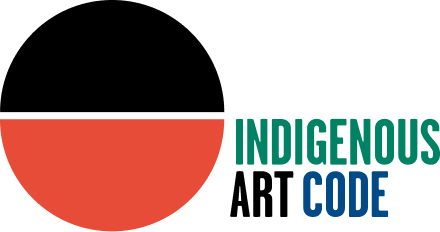Solomon Booth (Kubin, Moa Island, Queensland) is an Ikilaig man, hailing from Lag Mua, Kaurareg. He’s also a proud descendant of the Wakka Wakka and Yandruwandha Yawarrawwarrka peoples.
What does fair mean to you? Interview with artist Solomon Booth

For the past twenty-three years he’s been working as an artist and leading arts worker (out of Moa Arts and also as the President of the Indigenous Art Centre Alliance—the peak body for Indigenous Art Centres in Queensland). A keen passion for understanding and for forging mutually-beneficial agreements is what drives him.
His practice as an artist, and storyteller of his and his people’s Culture, leans towards a mastery of a range of printmaking techniques (relief printing, intaglio and pochoir).
A remarkable artist and a leader in the Indigenous art sector, Booth speaks about what inspires him in his work, saying, “It’s about creating a legacy, to showcase that I was here in this world. Also, giving a voice and recognition to my ancestors for future generations to reflect on”.
And, of course, Booth’s legacy will extend beyond not only his exceptional and prolific practice as an artist, but to his work as a Cultural Boss, a leader in an ever-moving policy and political space within the sector. With this in mind, he reflects upon formative experiences in his professional life when he relied on his knowledge of Best Practice and his instincts, when he was being offered a sub-par deal.
“I’m a very cautious person and haven’t got myself into such situations of being treated unfairly”, says Booth, “It’s all about education and being willing to listen, asking the right questions and knowing where to turn to for the right advice”.
“One story I can share, was when an agent for a big hotel chain asked if I would sign a contract to sign my copyright over for an award-winning artwork of mine, to him, and for mere pittance. I told him where to go and not to return”.

With many changes afoot in the art industry, more broadly, when asked if he thinks things are changing for the better, that people seeking to work with Indigenous artists are learning more about protocols and following Best Practice guidelines, booth says:
“Yes the sector has improved and can only continue to improve, if checks and balances are in place in all organisations. And, if that gut feeling arises, get a second opinion from the Indigenous Art Code, Copyright Agency or Arts Law”.
In closing, his advice to emerging artists is to “be quick to listen when your Elders give you constructive criticism, always get a second opinion when faced with an unforeseen circumstance and learn to ask the right questions… this will open up the right doorways”.
Adding that the ethos of ‘Mina pawa’ (in the Kala lagaw Ya language of Maluilgal, Zenadh Kes), meaning to conduct oneself in an ethical and moral manner, is the message for younger generations he hopes inspires them and give them fortitude.
To learn more about Solomon Booth and Moa Arts, visit: www.moaart.com.au
_________________________
Indigenous Art Code asks Code Signatories (Code Signatories) to work fairly and transparently with artists, and the Indigenous Art Code of Conduct (the Code) sets out guidelines for Code Signatories to do this.
But from the artist’s perspective, what is fair?
Following conversations with Waanji, Teppathiggi and Tjungundji artist, writer, activist and deep thinker, Jack Wilkie-Jans, Indigenous Art Code commissioned him to write something about the concept of ‘fair’ from the artist’s perspective. In this series of interviews, Jack speaks with a diverse group of First Nations artists and cultural practitioners from across the country to better understand what fair means to them when they are creating art that is to be sold or licensed.

Jack Wilkie-Jans (Waanji, Teppathiggi and Tjungundji man of British, Vanuatuan and Danish heritage) is an established arts writer, artist, arts worker, and Aboriginal affairs advocate from Cape York Peninsula, based in Cairns/Gimuy, Queensland. After 12 years working across the contemporary Indigenous visual arts sector at all levels of project management, domestically and internationally, in 2023 Jack launched his own consultancy practice: JWJ Consultancy. Professionally, Jack specialises in arts writing & review; policy guidance; governance and operational best Cultural practice; artist representation; regional economic development; and land management.
A Tribal Great-Grandson of Dr Thancoupie/Thanakupi Gloria Fletcher James AO, Jack is an Alumni of the National Gallery Leadership Program (2011). As an artist (painting, film and photography) his focus is on post-colonial narratives and non-Culturally specific artistic abstraction and exploration.

